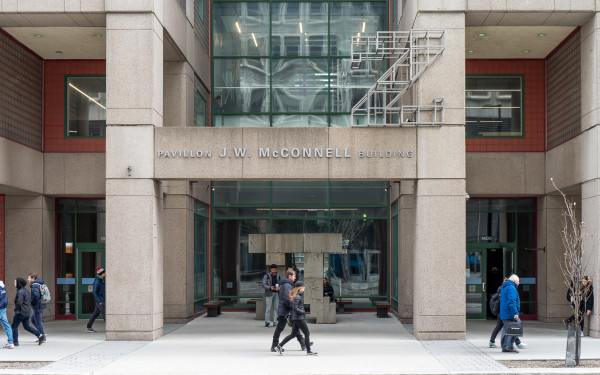Sustainable Concordia Withdraws Fee Levy Request
Group Wants to Evaluate its Financial Needs Before Asking for More Money
Citing a need for more preparation, Sustainable Concordia withdrew its proposal for a 400-per-cent increase in the funding it receives from students at last Wednesday’s Concordia Student Union Council meeting.
“We would seriously prefer to plan and then ask, as opposed to ask for the fee levy and deal with the funds as they come in,” said SC’s External Communications Coordinator Pawel Porowski. “The group is looking to do a little bit more planning and consensus building on some of the projects that would be funded with the fee-levy increase.”
Porowski expects a second fee-levy proposal will be presented next Fall.
Undergraduates currently allocate SC $0.05 per credit each semester, but the group had plans of reaching a new agreement to receive five times that amount.
What would have once been the least funded student group that falls under the association and activities fee would have become on par with the many other groups had the fee-levy application not been retracted.
“We need to assess with greater detail the use of this potential income, as well as review internal processes to ensure that the same level of transparency and accountability is maintained,” SC’s Office Manager Ghanish Ghoorah said in a statement issued to The Link.
Ghoorah also noted that SC held multiple visioning sessions and factored in its sensitivity to impending tuition increases in reaching the decision.
As SC functions through a multi-stakeholder approach, its groups are funded through faculty, administration, community and government grants. The current student fee levy accounts for only a small fraction of its total funding.
“We operate on the organizational budget that is already more than what we receive from the students, mainly because we’re all volunteering or getting paid very little,” continued Porowski.
“The increase of our budget would still mean that it would allow for our organization to grow and it would also more accurately reflect the type of expenditures that we would have.”
Some of the money would have been used for the human resources of developing projects.
“It could help fund partially a student position such as the Concordia Greenhouse coordinator who, last year alone, along with her team, involved over 600 volunteers and helped develop the GH Atrium space and educational workshop for students,” Ghoorah said.
Planting more fruit trees to increase food security, plans to educate students on how to grow their own food and expansion of the Concordia Greenhouse are a handful of campus initiatives SC is planning to take
“[The money] was going to be divided amongst all of the groups, because they’re all really underfunded at this point and time,” said CSU VP Sustainability & Promotions Morgan Pudwell.
The Food Systems Working Group is currently conducting a report to figure out how food systems at Concordia can be improved.
Cameron Stiff, one of the project’s coordinators, said the results from the report “will likely be [released] after reading week.” The information will be posted on SC’s website once all of it is gathered.
“It is crucial that students closely involved with SC, project coordinators and board of directors members all agree to a common vision—this process takes time,” said Ghoorah.
“Therefore, until actions and processes are clearly formulated for the proposed increase, it would not be responsible, in our opinion, to ask undergraduates at Concordia to financially contribute to them.”
This article originally appeared in Volume 31, Issue 23, published February 15, 2011.

__900_600_90.jpg)


_600_375_90_s_c1.jpg)

